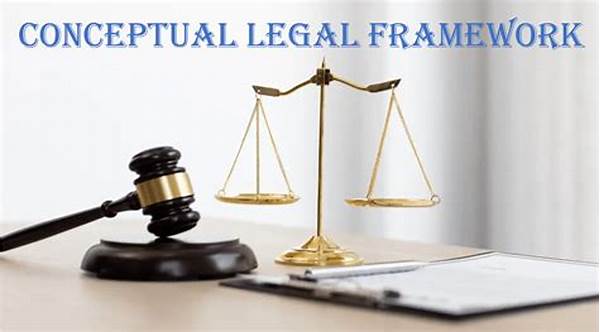The complexity of contemporary warfare necessitates a nuanced understanding of the legal structures that govern the use of resources during conflicts. International law, alongside domestic regulations, plays a critical role in determining the obligations and limitations imposed on states and non-state actors regarding resources in wartime. This article explores various dimensions of the legal frameworks governing war resource use and provides a detailed analysis of the relevant legal principles, treaty obligations, and judicial interpretations that influence their implementation.
Historical Context and Evolution
The legal frameworks governing war resource use have evolved considerably over time, reflecting changes in warfare norms and international relations. Historically, conflicts were often characterized by unrestricted resource exploitation. However, the devastation caused by two world wars catalyzed the development of international standards aimed at regulating such practices. Treaties such as the Hague Conventions and the Geneva Conventions emerged as foundational texts establishing rules for the protection and management of resources during wartime. These treaties gradually incorporated environmental considerations, setting the stage for more comprehensive legal frameworks governing war resource use. Consequently, modern legal instruments not only address the direct usage of resources but also consider long-term environmental impacts, aiming to balance military necessity with humanitarian concerns.
Key Legal Instruments
1. Geneva Conventions: Central to the legal frameworks governing war resource use, these conventions set humanitarian standards in armed conflicts, including resource protection.
2. Hague Conventions: These establish rules of war conduct, promoting civilian resource protection and prohibiting unnecessary destruction.
3. Environmental Protocols: Treaties such as the Environmental Modification Convention integrate environmental protection within wartime legal frameworks.
4. United Nations Resolutions: Various UN resolutions reinforce legal standards, emphasizing the fair use and conservation of resources amidst conflict.
5. International Court Decisions: Judicial interpretations by international courts further refine the understanding and application of legal frameworks governing war resource use.
Contemporary Challenges
The implementation of legal frameworks governing war resource use faces numerous challenges in today’s geopolitical climate. With the growing prevalence of non-state actors in conflicts and the complexity of asymmetric warfare, existing legal mechanisms are often tested. These frameworks must adapt to address issues such as resource trafficking, cyber warfare implications on resources, and the protection of natural resources in irregular conflicts. Additionally, emerging technologies and their use in warfare present new hurdles, requiring the adaptation of existing legal instruments to effectively regulate resource use. Thus, continuous international collaboration and dialogue are imperative to enhance these legal frameworks, ensuring their relevance and efficiency in contemporary conflicts.
Enforcement and Compliance
Ensuring compliance with legal frameworks governing war resource use is a multifaceted endeavor. International bodies, such as the United Nations, play a pivotal role in monitoring adherence to established norms and facilitating enforcement mechanisms. Sanctions, diplomatic pressure, and international judicial mechanisms are frequently employed tools to uphold compliance. Despite these efforts, challenges remain, particularly in regions where governance structures are weak or contested. Furthermore, the transnational nature of resource exploitation often complicates enforcement, necessitating cooperative international efforts and local capacity-building initiatives to bolster compliance with legal frameworks governing war resource use.
Role of Non-State Actors
Non-state actors increasingly influence the dynamics of modern conflicts, challenging traditional legal frameworks governing war resource use. These actors, often less bound by international treaties, may exploit resources indiscriminately, exacerbating humanitarian and environmental crises. The international community faces significant challenges in holding such actors accountable, as existing legal frameworks primarily target state conduct. However, evolving international norms and judicial rulings progressively incorporate non-state actors into their scope, recognizing the need to address their resource-related activities. Consequently, strengthening the legal frameworks governing war resource use requires adapting to these realities, ensuring comprehensive regulation that encompasses all parties involved in conflict.
Environmental Considerations
Environmental protection has become a central component in the development of legal frameworks governing war resource use. With the long-term ecological impacts of warfare becoming increasingly evident, international legal instruments now incorporate environmental provisions, mandating the protection of natural resources during conflicts. These provisions aim to mitigate the lasting damage to ecosystems and ensure sustainable resource management. Effective implementation of these aspects requires detailed assessments, proactive planning, and robust enforcement mechanisms. The global community’s commitment to strengthening these environmental safeguards within legal frameworks is crucial to preserving biodiversity and ecosystem health amidst the realities of conflict.
Conclusion
In summation, legal frameworks governing war resource use are integral to moderating the conduct of conflict and minimizing its humanitarian and environmental impacts. Encompassing a range of legal instruments, from international treaties to judicial interpretations, these frameworks strive to balance military necessity with ethical considerations. While historical progress in defining these norms is evident, contemporary challenges highlight the necessity for continuous adaptation and strengthening of these frameworks. As conflicts evolve, so too must the legal structures that regulate them, ensuring their pertinence and effectiveness in safeguarding human and environmental welfare in times of war. Through sustained international cooperation and commitment, the global community can enhance the efficacy of legal frameworks governing war resource use, fostering a more stable and just international order.





